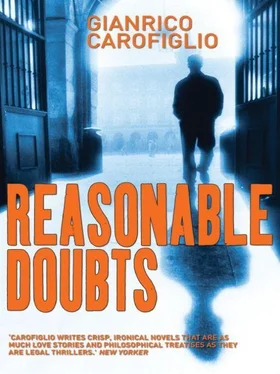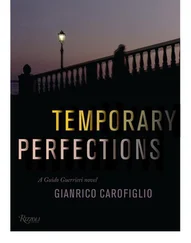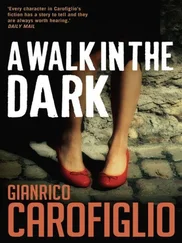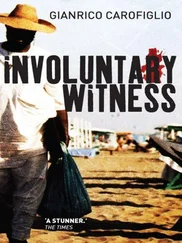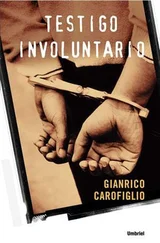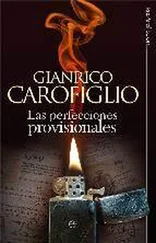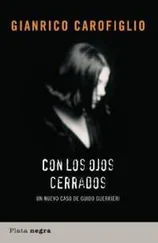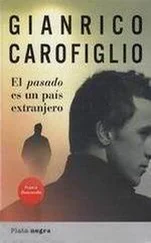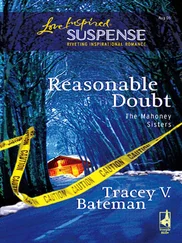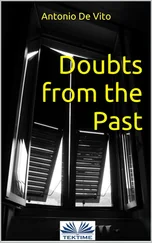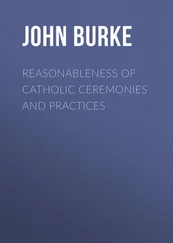Gianrico Carofiglio - Reasonable Doubts
Здесь есть возможность читать онлайн «Gianrico Carofiglio - Reasonable Doubts» весь текст электронной книги совершенно бесплатно (целиком полную версию без сокращений). В некоторых случаях можно слушать аудио, скачать через торрент в формате fb2 и присутствует краткое содержание. Жанр: Криминальный детектив, на английском языке. Описание произведения, (предисловие) а так же отзывы посетителей доступны на портале библиотеки ЛибКат.
- Название:Reasonable Doubts
- Автор:
- Жанр:
- Год:неизвестен
- ISBN:нет данных
- Рейтинг книги:5 / 5. Голосов: 1
-
Избранное:Добавить в избранное
- Отзывы:
-
Ваша оценка:
- 100
- 1
- 2
- 3
- 4
- 5
Reasonable Doubts: краткое содержание, описание и аннотация
Предлагаем к чтению аннотацию, описание, краткое содержание или предисловие (зависит от того, что написал сам автор книги «Reasonable Doubts»). Если вы не нашли необходимую информацию о книге — напишите в комментариях, мы постараемся отыскать её.
Reasonable Doubts — читать онлайн бесплатно полную книгу (весь текст) целиком
Ниже представлен текст книги, разбитый по страницам. Система сохранения места последней прочитанной страницы, позволяет с удобством читать онлайн бесплатно книгу «Reasonable Doubts», без необходимости каждый раз заново искать на чём Вы остановились. Поставьте закладку, и сможете в любой момент перейти на страницу, на которой закончили чтение.
Интервал:
Закладка:
The anguish of those nights came back to me, and I felt the same painful, helpless compassion for the child I was then and that beautiful, unhappy little girl now.
I didn’t say all this to Natsu. I’d have liked to, I think, but I couldn’t.
Instead, I stood up. It had got very late, I said. I’d better go, because apart from anything else I was working the next day. We walked out into the hall.
“Wait a moment,” she said.
She went back into the kitchen, and came back again a few seconds later with a CD.
“It’s the one we were listening to tonight. Take it.”
I held it in my hand, looking at the title, silently, trying to think of something to say. In the end, though, I just said goodnight and slipped out, as quick as a thief, and down the stairs of that quiet apartment block. Ten minutes later I was in my car, listening to the CD as I drove home along the cold, deserted street.
Home was cold and deserted, too.
15
Tancredi’s call came as I was leaving the clerk of the court’s office, after a depressing look through a number of files.
“Carmelo.”
“Where are you, Guerrieri?”
“In Tahiti, on holiday. Didn’t I tell you?”
“Be careful. With jokes like that, someone might die laughing.”
He told me he had to see me. From his tone it was clear it was about something he had no intention of telling me over the phone, so I didn’t ask him any questions. He suggested we meet in a bar near the courthouse, and twenty minutes later we were sitting in front of two of the worst cappuccinos in the region.
“Do you have the passenger list?”
Tancredi nodded. Then he looked around, as if to check that no one was watching us. No one could have been watching us, because the bar was empty, apart from the fat lady behind the counter. The perpetrator of those delightful cappuccinos.
“Among the passengers coming from Montenegro was a gentleman who’s quite well known in certain circles.”
“How do you mean?”
“Luca Romanazzi, class of 1968. He’s from Bari, but lives in Rome. Twice arrested and tried for Mafia connections and drug trafficking, twice acquitted. Middle-class family, father a municipal employee, mother a nursery school teacher. Brothers normal. A normal family. He’s the proverbial black sheep. We’re sure he took part in a series of armoured-car robberies – according to various informants – and that he was involved in trafficking with Albania. Drugs and luxury cars. But we have nothing that’ll stick. The son of a bitch is good.”
“He could have organized this whole operation.”
“Yes, he could. He could also be an accomplice of your client’s, to take another plausible hypothesis.”
“I need to show his face to Paolicelli.”
“Of course.”
“That means I need a photo, Carmelo.”
He didn’t reply. He looked around again, moving only his eyes, and then took a yellow envelope from the inside pocket of his jacket and gave it to me.
“I’d be grateful if this stayed confidential, Guerrieri. And after you’ve shown it to your client I’d be grateful if you burned it, or ate it, or whatever you like.”
I was listening to him with the envelope in my hand.
“And I’d also be grateful if you put it away. For example, doing a complicated thing like putting it in your pocket before everyone in the bar realizes that Inspector Tancredi delivers supposedly confidential papers to a criminal lawyer.”
I didn’t bother saying that “everyone in the bar” seemed to me a bit of an exaggeration, seeing that the lady behind the bar had been joined only by a little old man who was drinking a double brandy, completely uninterested in us or the rest of the world. I thanked him and put the envelope in my pocket. Tancredi was already getting up to go back to police headquarters.
16
Every job has its breaking points, its fault lines. Cracks on the wall of consciousness that make you realize – or should make you realize – that you ought to stop, change, do something else. If it’s at all possible. Of course it almost never is. And besides, you almost never have the courage to even think about it.
I had many symptoms of a breaking point coming. One of them was the nausea I always felt when I had to visit the prison. It would begin as a creeping anxiety when I was still in my office, continue as I was on my way there, and turn to disgust when I was at the checkpoint and they were registering my name, taking my mobile phone, locking it in a cabinet, and opening the first of the many doors I would have to go through to get to the interview room.
That day the disgust was particularly strong, and physical.
As I waited for them to bring in Paolicelli, I asked myself what I would do if he recognized the man in the photo. I’d go back to Tancredi, and he would tell me that he couldn’t do anything else for me. Taking a photo from the Flying Squad databank was already a big favour. He could hardly start an investigation, based purely on the hypothesis that Luca Romanazzi had stuffed Fabio Paolicelli’s car full of drugs, either directly or through an intermediary. I didn’t need a policeman or a private detective for an investigation like this, I needed a magician.
If Paolicelli didn’t recognize the photo, it was all a lot simpler. I had done my best – nobody could deny that – and all I could do now was limit the damage. My duty became much simpler. The appeal was completely hopeless and we had to plea-bargain. No dilemma – I’d had enough of dilemmas, even more so in this case than in others – no effort, nothing to study. Nothing.
And into these reflections there crept, like some quick-moving, repulsive little animal creeping into the well-scrubbed kitchen of a house in the country, the idea that if things went that way, Paolicelli would be in prison for quite a long time.
And I’d know how to make use of that time.
“What is it?” he asked me as I held out the photo.
“Take a look at it and tell me if you know this man or if you’ve ever seen him.”
He looked at it for a long time, but, from the way he started to shake his head imperceptibly, I realized that my investigation was already over. The shaking became more marked and at last he looked up at me and gave me back the photo.
“Never seen him. Or if I have, I’ve forgotten. Who is he?”
I was tempted to reply that, since he didn’t know him, it didn’t matter. But I didn’t do that.
“He’s a criminal. A top-level drug trafficker. At least the police suspect he is, though they’ve never been able to pin anything on him. He was on board the same ferry as you. My suspicion was that he had something to do with what happened to you.”
“What do you mean, your suspicion was? Don’t you still suspect him?”
It was an intelligent question, and I gave a stupid answer.
“You didn’t recognize him.”
“What does that mean? I didn’t see who put the drugs in my car. How could I recognize him? If there’s a reason to suspect this character had something to do with my case, what difference does it make if I don’t recognize him?”
His reply annoyed me. I had to make an effort to restrain the impulse to give him a curt answer, to the effect that I was the lawyer and he was the client. I was the professional and he was the prisoner. I had to make an effort not to pay him back for the fact that he was right.
“Theoretically, it shouldn’t make any difference. But in practice, even though we may suspect this man, we have no pretext to present this suspicion in court if you don’t recognize him. If you can’t say that you noticed this man hanging around your car, for example. Or that he was unusually interested in you, in when you’d be going back-”
Читать дальшеИнтервал:
Закладка:
Похожие книги на «Reasonable Doubts»
Представляем Вашему вниманию похожие книги на «Reasonable Doubts» списком для выбора. Мы отобрали схожую по названию и смыслу литературу в надежде предоставить читателям больше вариантов отыскать новые, интересные, ещё непрочитанные произведения.
Обсуждение, отзывы о книге «Reasonable Doubts» и просто собственные мнения читателей. Оставьте ваши комментарии, напишите, что Вы думаете о произведении, его смысле или главных героях. Укажите что конкретно понравилось, а что нет, и почему Вы так считаете.
